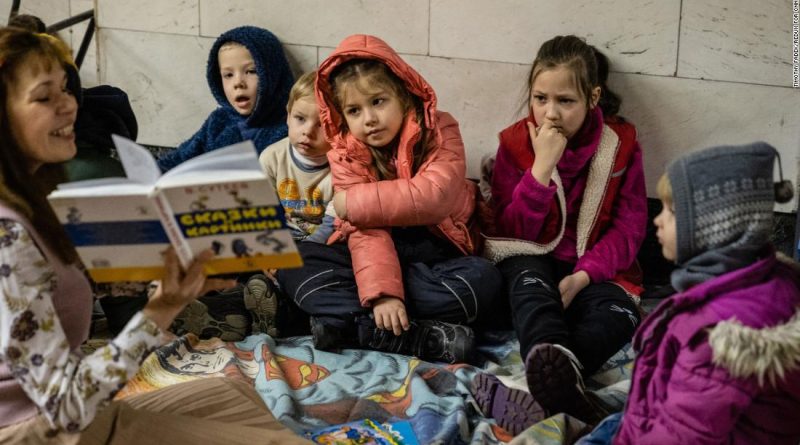Opinion: As a child of war, I know what the Ukrainians are going through
Like those children who are being awakened by sirens in the Eastern European nation these days, I, too, woke up to that sound in the middle of the night and rushed to the basement. The eight-year Iran-Iraq war started in 1980 when I was just four years old.
In February 1984, nearly exactly 38 years prior to Russia’s attack on the Ukrainian capital, Iraq’s strategic bombing against cities — including Tehran — began, making every house and every child in my vicinity a potential target.
It always happened at night, when the sky was dark, when the houses switched on their lights and illuminated from within our beautiful city, a shimmering jewel at the foot of the Alborz mountains. That was when the Iraqi planes would come and the sirens would sound and when our government would cut the city’s electricity, supposedly so the planes couldn’t find their way.
That was when the sky could show off its brilliant stars and when for brief seconds on the way to the basement I’d stand in the yard, looking up to try and pinpoint a constellation my father had taught me, to marvel at our smallness in this universe. But the anti-aircraft tracers, like some joke of a firework display, would signal the impending bomb drop, and prompt me toward the entrance of the basement, inside of which we’d wait, hoping it wouldn’t be us, or someone we knew, at least not that time.
Once the sun cracked open the sky, life went back to normal. We went to school; the adults made their way to work. In the afternoons, the neighborhood kids and I rode our bikes through our tree-lined streets in search of adventures, ice cream or whatever it is eight- and nine-year-olds are after. I had a happy childhood, filled with love and laughter and friends, and while I knew the war wasn’t normal—as I distinctly remembered the horror of its beginnings and understood how it deeply disrupted our lives—it lasted so long it was normalized, its yarns weaved themselves into the fabric of our young lives.
War became just another thing that happened to people, like heart attacks and automobile accidents, another cause of mortality. Food and gas rationing were just another challenge; airport closures were an inconvenience.
It wasn’t until I was years and miles away from that wartime, I understood nothing about the experience was, or should’ve felt, normal.
Humans are resilient and capable of adapting, and children are, at least, anecdotally said to be even more so. Therefore, it’s no surprise that, similar to how we have, over the last couple of years, found a sense of normalcy while traversing our way through the current pandemic, my generation and I managed to live somewhat normal lives through that experience.
Long-term consequences are, on the other hand, a different story. They are less documented and understood than direct conflict-related effects like death. There are, however, some indications and research pointing to the longer-term mental and physical effects of war.
Those are from the groups who get to live years or miles away from conflict.
Getting through these videos and stories is difficult. Like many, I understand how horrific they are and imagine how horrific it must feel to those schoolchildren, to that little girl and her parents. But I worry if the Ukraine-Russia conflict goes on long enough, these children too, will get used to something no child should ever get used to.
The war will be normalized and they will adapt. The unthinkable is unthinkable until it becomes thinkable, until it squirms its way into the stitches of that little girl’s life, of those of her generation’s, the consequences of which will likely last for years to come.




